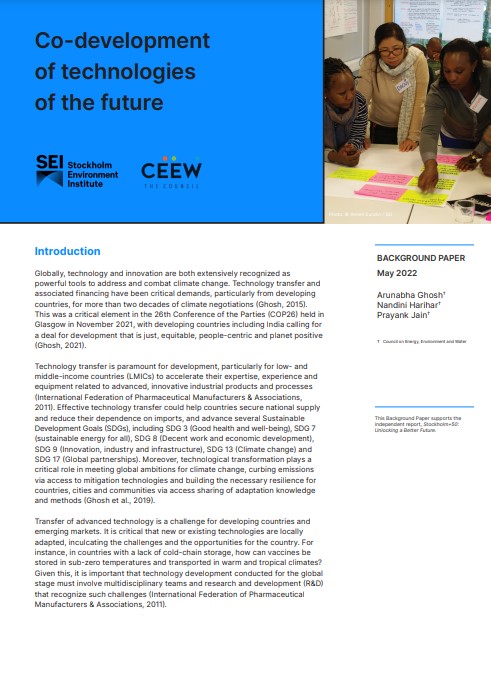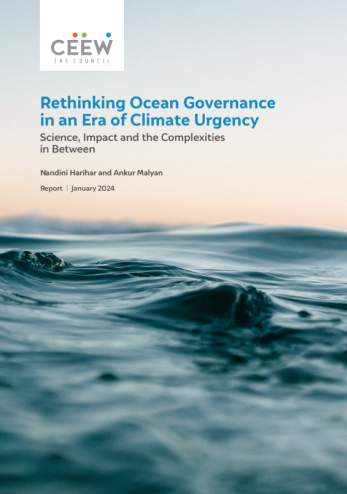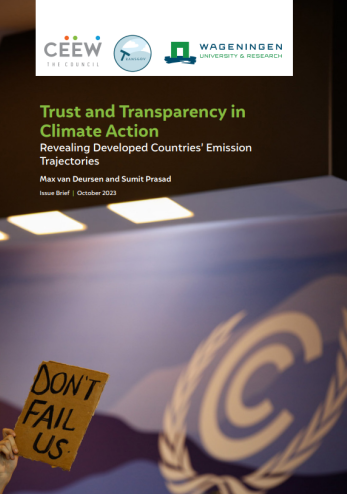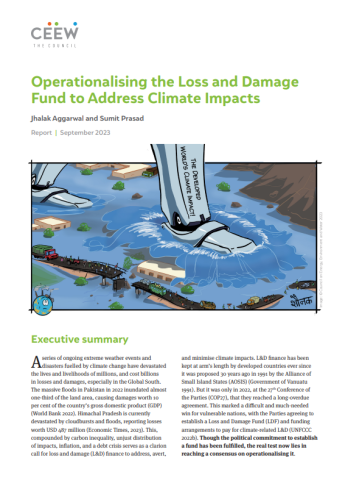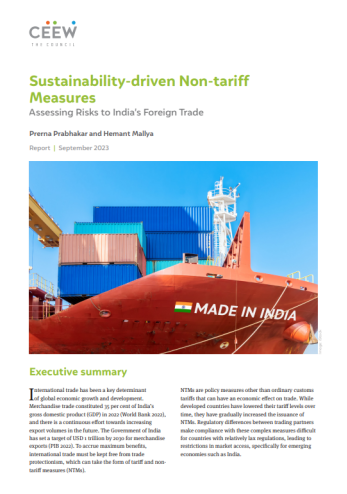Paper
Co-Development of Technologies of the Future
Ghosh, Arunabha, Nandini Harihar and Prayank Jain
May 2022 | International Cooperation, Technology Futures
Suggested citation: Ghosh, Arunabha, Nandini Harihar and Prayank Jain. 2022. Co-development of Technologies of the Future. Stockholm+50 background paper series. Stockholm: Stockholm Environment Institute.
Overview
Despite decades of discourse on technology transfer and collaborations, there is still limited understanding and consensus of what works and what does not for technology transfer. In this regard, this paper analyses three key questions on technology transfer, cooperation and collaboration in critical sectors such as energy, agriculture and healthcare to shift the narrative from technology ‘transfer’ to ‘co-development’. The paper analysed 30 multilateral agricultural initiatives and 36 multilateral clean energy initiatives in the last decade (2010–21) to highlight significant bottlenecks with technology transfer to develop a new global technology order based on the modalities for technology collaboration.
Key Highlights
- Currently, there is a lack of equitable technology transfer in critical sectors. For instance, in 2030, 660 million people in sub-Saharan Africa will still lack access to electricity while developed countries transition from coal to natural gas to renewable energy and green hydrogen.
- There are several hurdles to technology transfer globally. This includes the cost of the technology varying geographically; higher cost of finance for technology deployment in developing countries; stringent Intellectual property rights (IPRs) delaying rapid dissemination; lack of technical know-how and manufacturing infrastructure; and lack of innovation and localised adaptation of novel and existing technologies.
- Within the energy space, only two initiatives in the last decade focused at a sub-national level, and only one explicitly focused on strengthening South-South cooperation in technology transfer and improving the roles of existing institutions in the Global South.
- Within the agriculture space, only one initiative specifically focused on increasing the participation of developing countries in collaborative approaches to research, development and deployment. Despite the localised connotation of agricultural initiatives, only one initiative explicitly focused on downscaling climate issues into agriculture policies at the sub-national level.
- With vaccines, there is a stark contrast between research and demand. Less than 25 per cent of all biomedical research publications and 33 per cent of clinical trials in Africa relate to diseases involving 50 per cent of the infections in the continent.
Key Recommendations
- Push out the phrasing of ‘technology transfer’ from negotiations and implementation frameworks and reimagine a new global technology order that focuses on co-development.
- Co-development of technology is the pooling of resources among countries through co-ownership and sharing of the co-benefits. This can reduce the cost of technology development and aid in accelerating the pace and scale of technology access, development, and use, globally.
- Enabling technology co-developing entails five modalities including ease of licensing, co-owning IPRs, pooling resources through innovative financial and non-financial incentives, managing risk and liability, and developing multi-stakeholder networks for governance and transparency.
- Institutionalisation of these modalities by domestic and international actors can accelerate effective usage and scale up future technologies, as well as develop the regulatory apparatus and ecosystem to harness opportunities, remove chronic barriers, address user-side challenges, and create facilities that encourage co-development and co-ownership.
The new global technology order must adequately respond to the planetary crises and emphasise co-development and co-ownership as the new mantra for global technology progression and development. All technologies consistent with sustainable development and those that require scaling must be co-developed, with active involvement from the Global South.




